7 start with Z start with Z
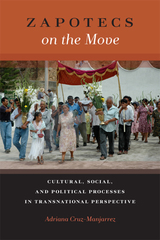
Based on multi-site fieldwork conducted over a five-year period, Adriana Cruz-Manjarrez analyzes how and why Yalálag Zapotec identity and culture have been reconfigured in the United States, using such cultural practices as music, dance, and religious rituals as a lens to bring this dynamic process into focus. By illustrating the sociocultural, economic, and political practices that link immigrants in Los Angeles to those left behind, the book documents how transnational migration has reflected, shaped, and transformed these practices in both their place of origin and immigration.

"With his sensitive reporter's eyes, Mr. Friedman takes us inside the settlement movement, to the synagogies, kitchen tables and television rooms where ordinary people talk of extraordinary things . . . . This is a chilling book. The contrast drawn between charming suburban lawns of settlement communities and the political threat they represent is sobering. The current Labor government in Israel, and American diplomats pursing the peace process, minimize the movement as an irritant that can be managed when the time comes. Anyone who knows about the tenacity of the settlers, as described by Mr. Friedman, dares not be so confident."--Peter Grose, The New York Times Book Review
"[Zealots for Zion] is among a new genre of works on Israel that . . . appears to be setting a higher standard of objectivity for studies of the Palestinian-Israeli conflict. . . . It is not only a penetrating look at the violence-prone Israeli zealots who are behind the aggressive establishment of Jewish settlements on Palestinian land in the occupied territories, but also at the Jewish Americans who encourage, justify and help fund them."--Donald Neff, The Washington Post Book World
"Above all else, Friedman documents the extent to which Israeli political figures have used the settler movement for their own purposes. He also argues convincingly that the general unwillingness of many Israelis to thwart the zealots poses a grave threat to the future of Palestinian-Israel relations and the tenuous chance of negotiating a peace between Israel and its Arab neighbors."--Rita E. Hauser, Tikkun
"The mystical mythology, yuppie yearnings, willful naivete and raw prejudices of those staking a claim to what they consider to be 'Greater Israel' have rarely been this revealingly and comprehensively documented."--Nisid Hajari, Newsday
The peace agreement between Israel and the Palestine Liberation Organization gives us hope for the future of the West Bank, but no one expects the transition to be easy. Who are the zealots who care so deeply about retaining that land for their own? Robert Friedman, a prize-winning writer, takes a hard, close look at the legacy of the controversial policy of building settlements in the Occupied Territories. Zealots for Zion is a shocking investigation of the movement by militant right-wing Zionists to reinstitute the ancient civilization of Eretz Yisrael (Greater Israel) on lands seized in the 1967 Six-Day War.
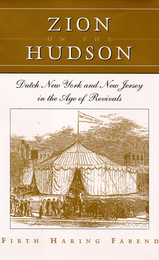
Winner of the 2001 New Jersey Author's Award by the New Jersey Academic Alliance
The Dutch came to the New World in the seventeenth century as explorers and traders, but religion soon followed, for it was accepted in the Netherlands that state and church were mutually benefited by advancing the “true Christian religion.” The influence of “Dutchness”—defined here as loyalty to what are presumed to be the distinctive qualities of Dutch national character and culture—persisted in New York and New Jersey for more than 200 years after Dutch emigration ended. Why?
Firth Haring Fabend finds the explanation in the devotion of the Reformed Dutch Church membership to the doctrines and traditions of their church. She looks at the individual and personal beliefs and behaviors of this often-neglected ethnic group. Thus, Zion on the Hudson presents both a broad and an intimate look at the way one mainstream Protestant denomination dealt with the transformative events of the evangelical era.
As Fabend describes the efforts of the Dutch to preserve the European standards and traditions of their church, while developing a taste for a new kind of theology and a preference for an American identity, she documents how Dutchness finally became a historical memory. The Americanization of the Reformed Dutch Church, Fabend writes, is a microcosm of the story of the Americanization of the United States itself.
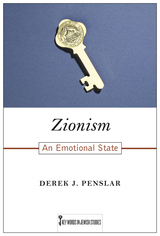
Zionism: An Emotional State expertly demonstrates how the energy propelling the Zionist project originates from bundles of feeling whose elements have varied in volume, intensity, and durability across space and time. Beginning with an original typology of Zionism and a new take on its relationship to colonialism, Penslar then examines the emotions that have shaped Zionist sensibilities and practices over the course of the movement’s history. The resulting portrait of Zionism reconfigures how we understand Jewish identity amidst continuing debates on the role of nationalism in the modern world.
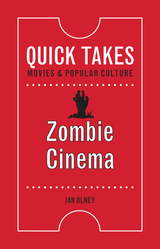
Zombie Cinema is a lively and accessible introduction to this massively popular genre. Presenting a historical overview of zombie appearances in cinema and on television, Ian Olney also considers why, more than any other horror movie monster, zombies have captured the imagination of twenty-first-century audiences.
Surveying the landmarks of zombie film and TV, from White Zombie to The Walking Dead, the book also offers unique insight into why zombies have gone global, spreading well beyond the borders of American and European cinema to turn up in films from countries as far-flung as Cuba, India, Japan, New Zealand, and Nigeria. Both fun and thought-provoking, Zombie Cinema will give readers a new perspective on our ravenous hunger for the living dead.
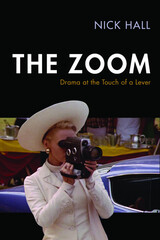
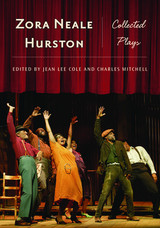
Though she died penniless and forgotten, Zora Neale Hurston is now recognized as a major figure in African American literature. Best known for her 1937 novel Their Eyes Were Watching God, she also published numerous short stories and essays, three other novels, and two books on black folklore.
Even avid readers of Hurston’s prose, however, may be surprised to know that she was also a serious and ambitious playwright throughout her career. Although several of her plays were produced during her lifetime—and some to public acclaim—they have languished in obscurity for years. Even now, most critics and historians gloss over these texts, treating them as supplementary material for understanding her novels. Yet, Hurston’s dramatic works stand on their own merits and independently of her fiction.
Now, eleven of these forgotten dramatic writings are being published together for the first time in this carefully edited and annotated volume. Filled with lively characters, vibrant images of rural and city life, biblical and folk tales, voodoo, and, most importantly, the blues, readers will discover a “real Negro theater” that embraces all the richness of black life.
READERS
Browse our collection.
PUBLISHERS
See BiblioVault's publisher services.
STUDENT SERVICES
Files for college accessibility offices.
UChicago Accessibility Resources
home | accessibility | search | about | contact us
BiblioVault ® 2001 - 2024
The University of Chicago Press









